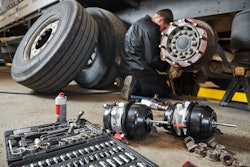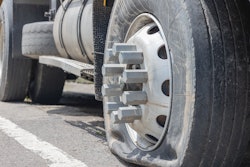I was a kid when municipal recycling started to become a big thing. The city dropped off a few plastic tubs at our house that we were supposed to fill with glass or paper or plastic depending on the color of the tub, then we'd have to sit those outside with the trash so they could be picked up by a different trash truck once per week.
I didn't think much of it at the time. I knew recycling was good for the environment and my task was pretty simple: drop trash in a colored bin. No big deal.
But that once per week pick up soon became every other week. Then an even longer interval. That program didn't even make it a year and we had three plastic tubs to deal with that no one would come get. The city dropped the recycling program due to cost and low participation. It was too much trouble and it took too much time.
This same scenario has played out in towns of all sizes all across the U.S. over the last 30 or 40 years, but recycling does work where it can be made to work.
According to the Environmental Protection Agency, the total generation of municipal solid waste in 2018 was 292.4 million tons, or 4.9 pounds per person per day. Of that, approximately 69 million tons were recycled and 25 million tons were composted. So, roughly 32% of all consumer trash finds its way to being reused.
When the onus of going green is placed on the consumer, the end result is often less than desirable. We want to be green but we want it to be cheap (and it almost never is), we want the quality to be comparable (and it's often not) and we want it to be easy (and it never is) because when there's a glass bottle in the trash next to dirty diaper, there's an army of well-intended recyclers ready to concede defeat and they don't care how many sea turtles are at stake.
The wallet-opening public, in general, is cheap and lazy, and that's why almost 70% of everything you throw away winds up in a landfill.
Trucking is currently under siege for the role it plays in environmental impact, but overlooked are all the significant steps this industry continues to undertake that fly under the radar.
Let's set aside the fact 60 trucks today emit the same level as one truck 30-some odd years ago; you could point to the entire commercial truck tire industry as an example of how well recycling can work when all parties have their act together.
Tire retreading saves trucking more than $3 billion per year, according to the Tire Retread & Repair Information Bureau, while also keeping pollutants out of the air and the landfill. According to the NHTSA Commercial Medium Tire Debris Study, each retread tire uses 30% less energy and 15 fewer gallons of oil to manufacture than a new tire.
Fleets with basic used tire programs easily can save a minimum of 50% on three cycles of a tire’s four-cycle life, and you can even get SmartWay low rolling resistance retreads, too. That's double dipping good stuff for the environment. A 2016 Ernst & Young study showed that retreading reduces carbon emissions, natural resource extraction, water consumption, air pollution and land use.
According to Bandag, a tire retread can buff an average of more than 12 pounds of rubber off of each tire, each of which tip the scale at close to 110 pounds. That rubber can be recycled as playground surfaces, rubber mats and rubber mulch, among many other uses. In excess of 90% of every commercial truck tire is given a second life through retreading – three times the amount of consumer waste that's done the same with virtually no sacrifice to quality.
We've heard many arguments against electrification that lie in a business case that doesn't make sense for shippers or carriers, but carriers – using tire retreading as a lone example, but there are others – have displayed a willingness to climb aboard the green train when the numbers align.













